“Given the profound consequences of loneliness and isolation, we have an opportunity, and an obligation, to make the same investments in addressing social connection that we have made in addressing tobacco use, obesity, and the addiction crisis.” (Introduction to "Our Epidemic of Loneliness and Isolation," 2023)
Inspired by the U.S. Surgeon General’s May 2023 public health advisory on loneliness and social isolation, the theme of this year’s conference acknowledges the central role the humanities must play in developing cultural interventions that support human connection, while promoting cultural humility and structural competency in the health professions and greater health justice.
Late registration is available. The deadline for the regular registration rate has passed
 April 10, 2024 01:00 pm
April 10, 2024 01:00 pm
 April 10, 2024 02:00 pm
April 10, 2024 02:00 pm
Leonard Grant, Syracuse University and Onondaga Community Trauma Task Force
 April 10, 2024 02:00 pm
April 10, 2024 02:00 pm
Cynthia Standley, The University of Arizona College of Medicine-Phoenix
 April 10, 2024 03:30 pm
April 10, 2024 03:30 pm
Room: Doris S. Norton Ballroom A
Presenter: Michael Zirulnik, Creighton University
 April 10, 2024 03:30 pm
April 10, 2024 03:30 pm
Abigail Weisse and Jennifer Caputo-Seidler, University of South Florida Morsani College of Medicine
 April 10, 2024 05:00 pm
April 10, 2024 05:00 pm
 April 10, 2024 06:30 pm
April 10, 2024 06:30 pm
Learning objectives:
1. Compare and contrast public hospitals in the U.S. to nonprofit and for-profit hospitals in the U.S.
2. Articulate the story of one patient denied care at a nonprofit hospital due to a lack of insurance
3. Delineate the relationship between a patient's health insurance coverage, acuity of illness, and type of treatment received
4. Describe how the medical humanities influenced the genesis of Houston's public healthcare system
 April 10, 2024 07:45 pm
April 10, 2024 07:45 pm
 April 11, 2024 08:00 am
April 11, 2024 08:00 am
 April 11, 2024 08:30 am
April 11, 2024 08:30 am
 April 11, 2024 08:30 am
April 11, 2024 08:30 am
 April 11, 2024 08:30 am
April 11, 2024 08:30 am
Masking Pain: The Loneliness of Chronic Illness
The Cancer Canon, Identity, and Inclusion
 April 11, 2024 08:30 am
April 11, 2024 08:30 am
(in-person attendees may view the live stream in the PHSC 6th floor event space)
1. Dissecting the Impact of Art in Medicine
Grace Kim, Srijan Bhasin, Symon Ma, Duke University School of Medicine
2. DEAFMed: Deaf Education and Awareness for Medical Students
Benedicta Olonilua, Natalie Perlov, Sidney Kimmel Medical College
3. The Healing Brushstroke: Fostering Empathy and Patient-Centered Care through Arts and Humanities
Shelly Xie, Houston Methodist Hospital
4. Reappraisal and Self-Characterization of Chronic Illness Experiences: A Literary Journal Case Study
Taruni Tangirala, Cornell University
5. Improving ICU Family Communication with Get-to-Know-Me Boards and ICU Diaries
Vivian Iloabuchi, Mayo Clinic Alix School of Medicine, Kenneth Shelton, Jonathan Ludmir, Massachusetts General Hospital
6. Grappling Isolation: How Supervised Injection Sites Support Individuals With Opioid Addictions
Tharika Thambidurai, Case Western Reserve University
7. From Scapegoating to Self-Defense: Exploring the Surge in Asian American Gun Ownership Amidst the Covid-19 Pandemic
Lydia (Sin Lei) Pui, Case Western Reserve University School of Medicine
8. Applied Theatre Arts as a Tool to Increase Depression Literacy in Adolescents: Lessons Learned from a Mixed-Method Pilot Study
Devin N. Thomas, Bowie State University
 April 11, 2024 10:15 am
April 11, 2024 10:15 am
 April 11, 2024 10:15 am
April 11, 2024 10:15 am
Rachel Conrad Bracken, Northeast Ohio Medical University
Phillip Barrish, University of Texas at Austin
Marty Fink, Toronto Metropolitan University
Joseph Stramondo, San Diego State University
Bernice L. Hausman, Penn State College of Medicine
Christopher D. E. Willoughby, University of Nevada, Las Vegas
Sarah E. Rubin, Ohio University Heritage College of Osteopathic Medicine
Catherine Belling, Northwestern U Feinberg School of Medicine
 April 11, 2024 10:15 am
April 11, 2024 10:15 am
Neva Kirk-Sanchez, Gauri Agarwal, University of Miami Miller School of Medicine; Hope Torrents, Art Matters with Hope, LLC
 April 11, 2024 10:15 am
April 11, 2024 10:15 am
(may view live stream from PHSC 6th floor event space)
 April 11, 2024 12:15 pm
April 11, 2024 12:15 pm
Links to videos presented:
About:
Eric Avery MD, Emeritus Associate Professor of Medical Humanities, Institute for Bioethics and Health Humanities, The University of Texas Medical Branch at Galveston
This is a visual narrative by Eric Avery, an artist who became a physician. Over fifty years he explored the liminal space between art and medicine, expanded the boundaries of printmaking, and tried to answer the question, Can Art Save Lives?
Although encouraged by an art professor to become a physician, upon entering medical school he was told that he could not be an artist and a physician (see conference bio or www.docart.com). Serendipitously, while a medical student, medical humanities programs had begun to emerge in the United States.
In 1967, the first medical humanities program in the United States was started by Al Vastyan, a former chaplain at UTMB, at the new medical school in Hershey, Pennsylvania. It included both literature and visual art. In 1973, the second program to develop was the Institute for Medical Huminites (IMH) at UTMB where Eric Avery was a medical student.
During this time, Edmund Pellegrino M D. (1920-2013), an early promoter of medical humanism, chaired the Institute on Human Values in Medicine. It had initiated a series of dialogue groups examining the intersection of the humanities and medicine. (1) In 1976, while Dr. Avery was in his psychiatry residency, he was invited to participate in one of these groups, the Visual Arts and Medicine Dialog Group. (2)
Al Vastyan, a member of the group, invited him to Hershey to explore his hypothesis that the relationship between art and medicine is space. The result was “Hands Healing: A Photographic Essay.” Literally, it visually explored the space of surgical healing when over 10 hours, a severed hand was reattached. (3)
This presentation is organized around spaces within which Dr. Avery has worked while making art alongside his clinical practice. These include work with refugees in Somalia (World Vision) (4); with refugees on the Texas Mexico Border (Amnesty International USA); and with people with HIV/AIDS (UTMB, IMH).
Trying to merge the sensibilities of visual art and medical practice (5), he created clinical art spaces in art museums and galleries (6). While working in public health and primary prevention spaces, he created artists books, and installations using educational wallpaper. While working in spaces of trauma and recovery, he helped originate use of lived cloth in papermaking and art therapy. (7)
After retirement from his clinical practice in 2012, he continues making socially engaged prints about the migrant crisis around him on the Texas-Mexico Border. Reflecting on the relationship between art and medicine, he wants us to ask ourselves: what is art for and what do artists do? If Art Can Save lives, are Dr. Avery’s prints art medicine? If not save lives, can they heal others as they have him in their creation?
1) Edmund Pellegrino, Visual Awareness: The Visual Arts and the Clinician’s Craft, foreword in The Visual Arts and Medical Education, (Southern Illinois University Press, 1983) ix-xi
2) Geri Berg, editor, ibid, 1983
3) Eric Avery, Hands Healing: A Photographic Essay, ibid, pg 10-26.
4) Christopher Whipple, Parched Land of the Dying, Life Magazine, April 1981 pg 36-46
5) Joanne Trautmann, William Carlos Williams and the Poetry of Medicine, Ethics in Science & Medicine, Vol 2, 1975 pp36-46
6) Eric Avery, Art as Medicine /Medicine as Art, in Dear Print Fan, A Festschrift for Marjorie B. Cohn, Craigen Bowden, Dackerman, S, Mansfield E, editors, Harvard University Art Museums (2001) 2-9
7) Eric Avery foreword in Drew Matott, Gretchen Miller, editors The Art and Art Therapy of Papermaking (Routledge 2024) xx-xxii
 April 11, 2024 01:15 pm
April 11, 2024 01:15 pm
 April 11, 2024 01:15 pm
April 11, 2024 01:15 pm
 April 11, 2024 01:15 pm
April 11, 2024 01:15 pm
Courtney Tyler, Texas Tech University
Rina Little, Texas Tech University
Jonathan Little, Alverno College
 April 11, 2024 01:15 pm
April 11, 2024 01:15 pm
Participate in-person from PHSC 106A
Joy Doll, Creighton University; Rachel Heinz, Health Center Association of Nebraska
 April 11, 2024 03:00 pm
April 11, 2024 03:00 pm
 April 11, 2024 03:00 pm
April 11, 2024 03:00 pm
Matthew Reznicek, University of Minnesota
Lydia Cooper, Seattle University
Brooke Kowalke, Creighton University
 April 11, 2024 03:00 pm
April 11, 2024 03:00 pm
Isabella Cuan, NYU Grossman School of Medicine
 April 11, 2024 03:00 pm
April 11, 2024 03:00 pm
(may view livestream in PHSC 604)
Samantha Chipman, Emory University
Melanie Gregg, Wilson College
Paul Root Wolpe, Emory University
Stephanie Larson, Cleveland Clinic and The University of New Mexico
 April 11, 2024 04:45 pm
April 11, 2024 04:45 pm
 April 11, 2024 04:45 pm
April 11, 2024 04:45 pm
 April 11, 2024 04:45 pm
April 11, 2024 04:45 pm
 April 11, 2024 04:45 pm
April 11, 2024 04:45 pm
(in-person attendees may view live stream in PHSC 604)
 April 11, 2024 06:15 pm
April 11, 2024 06:15 pm
 April 12, 2024 08:00 am
April 12, 2024 08:00 am
 April 12, 2024 08:30 am
April 12, 2024 08:30 am
Elizabeth Barr, NIH Office of Research on Women’s Health (ORWH)
Jeffrey Reznick, National Library of Medicine (NLM)
 April 12, 2024 08:30 am
April 12, 2024 08:30 am
 April 12, 2024 08:30 am
April 12, 2024 08:30 am
 April 12, 2024 08:30 am
April 12, 2024 08:30 am
(view live stream in PHSC 604)
Andrea Charise, University of Toronto Scarborough
Dirk J. Rodricks, University of Toronto Scarborough, Canada
Gloria Umogbai, Dalla Lana School of Public Health, University of Toronto
Nehal El-Hadi, University of Toronto
 April 12, 2024 10:15 am
April 12, 2024 10:15 am
Kate Brown, Sai Srihita Dommata, University of North Carolina at Chapel Hill
 April 12, 2024 10:15 am
April 12, 2024 10:15 am
 April 12, 2024 10:15 am
April 12, 2024 10:15 am
(in-person only - will be recorded)
Eric Avery and David Paar
 April 12, 2024 10:15 am
April 12, 2024 10:15 am
(in person attendees may view in PHSC 604)
Rebecca Garden, SUNY Upstate Medical University
Thomas Hehlmann, University of Bremen, Germany
Janet Weston, London School of Hygiene and Tropical Medicine, UK
Allan Arturo Gonzalez Estrada, Universidad Nacional, Heredia, Costa Rica
Lise Saffran, College of Health Sciences, University of Missouri
Amanda M. Caleb, Geisinger Commonwealth School of Medicine
Stephanie Larson, Case Western Reserve University
 April 12, 2024 12:00 pm
April 12, 2024 12:00 pm
12:15: Artist + Researcher (ARx) Program talk
Program Director: Cynthia Standley
ARx Team: Artist: Mary Lucking, Researcher: Anne Titelbaum
 April 12, 2024 12:00 pm
April 12, 2024 12:00 pm
Sign-up by Tuesday, April 9: https://www.signupgenius.com/go/805084FA8AD2DAAFF2-48696198-hhcmentorship#/
 April 12, 2024 01:00 pm
April 12, 2024 01:00 pm
Shapir Rosenberg, Alison Hartman
 April 12, 2024 01:00 pm
April 12, 2024 01:00 pm
1. Outside the Frame: Developing medical students’ metacognitive abilities through museum-based education
Kain Kim, Emory University School of Medicine
2. Reflejos: Artistic Reflections of Healthcare Providers
Jennifer Caputo-Seidler, University of South Florida
3. Shared Wisdom: Documenting and Preserving the Oral History of Retired and Retiring Healthcare Practitioners
Ian McCoog, Jordan Salvato, Geisinger Commonwealth School of Medicine
4. Read All About It: The Implementation of a Book Club in a Medical Workplace Setting
Neelufar Raja, Case Western Reserve University School of Medicine; Natalie J. Park, Yi Peng Wang, Matthew J. Kim, Jonathan M. Lewis, Indu Voruganti Maddali, Quoc-Anh Ho, Quynh-Thu Le, Kathleen C. Horst, Department of Radiation Oncology, Stanford University School of Medicine
5. Social Isolation in LVAD Caregivers: Finding Ways the Health Humanities Can Help
Rita Dexter, Baylor College of Medicine
6. Critical Approaches to Religion and Spirituality: Essential for Undergraduate Health Humanities?
Erin Prophet, University of Florida
7. The “Medical Gaze” and Its Role in the Development of Medical Trainees
Nicholas Ogrinc, Case Western Reserve University
8. Fostering Wellness and Sustainability through Walk, Bike, and Carpool to School Week 2023
Alison Stiller, Creighton University - Phoenix Regional Campus
9. Are we Ever Really Recovered?, Gianna Paniagua, Columbia University
 April 12, 2024 01:00 pm
April 12, 2024 01:00 pm
 April 12, 2024 01:00 pm
April 12, 2024 01:00 pm
Lois Hendrickson, Emily Beck, University of Minnesota - Twin Cities
In-person only, will not be recorded
 April 12, 2024 02:45 pm
April 12, 2024 02:45 pm
 April 12, 2024 02:45 pm
April 12, 2024 02:45 pm
 April 12, 2024 02:45 pm
April 12, 2024 02:45 pm
Kirsten Ostherr, Rice University
Eivind Engebretsen, University of Oslo & Circle U. European University Alliance
Sanjoy Bhattacharya, University of Leeds, UK
Rebecca Garden, SUNY Upstate Medical University
 April 12, 2024 02:45 pm
April 12, 2024 02:45 pm
 April 12, 2024 04:30 pm
April 12, 2024 04:30 pm
Craig Klugman, DePaul University
Anna-leila Williams, Frank H. Netter MD School of Medicine at Quinnipiac
University
Erin Gentry Lamb, Case Western Reserve University School of Medicine
Sarah Berry, Rhodes College
PatriciaLuck, University of Rochester School of Medicine
Rita Dexter, Baylor College of Medicine
Sean Eli McCormick, Case Western Reserve University School of Medicine ;
Anna Maria Marcu, DePaul University
 April 12, 2024 04:30 pm
April 12, 2024 04:30 pm
Jamming for Health: An Emancipatory Research Approach for Engaging Equity-Deserving Communities in Game-based Storytelling
Close Listening in The Community: Narrative Power and Oral Health Justice
Collaborative Knowledge Building: Engaging Virtual Chronic Illness Communities in Research about Them
 April 12, 2024 04:30 pm
April 12, 2024 04:30 pm
 April 12, 2024 04:30 pm
April 12, 2024 04:30 pm
(may view livestream in PHSC 604)
Rocio Pichon-Riviere, University of California, Irvine
 April 12, 2024 06:15 pm
April 12, 2024 06:15 pm
All are welcome to this informal gathering to learn about opportunities for participation and mingle with committee members. For virtual participants, connect with committee heads through information at the links below. Refreshments will be provided.
• Arts & Health Equity – Siobhan M. Conaty
• Awards – Julia Knopes, Kamna Balhara, and Phillip Barrish
• Curriculum & Assessment – Rosemary Weatherston and Rachel Bracken
• Conference Planning & Support – Erin Gentry Lamb
• Equity, Diversity, and Inclusion (EDI) – Sarah Berry
• Humanities and Arts in Health Professions Education (HAHPE) – Bernice Hausmann
 April 12, 2024 06:00 pm
April 12, 2024 06:00 pm
6 to 8 p.m. Student/Early Career Professionals Social
(get drink/food tickets from registration desk)
6-8 p.m. Local Social hosted by Arizona State University.
 April 13, 2024 08:00 am
April 13, 2024 08:00 am
 April 13, 2024 08:30 am
April 13, 2024 08:30 am
 April 13, 2024 08:30 am
April 13, 2024 08:30 am
Jessica Hume, Patrick Lynch, Olivia Remmert, Callie Clark, Bellarmine University
 April 13, 2024 08:30 am
April 13, 2024 08:30 am
 April 13, 2024 08:30 am
April 13, 2024 08:30 am
(in-person only: PHSC 106A)
 April 13, 2024 10:15 am
April 13, 2024 10:15 am
 April 13, 2024 10:15 am
April 13, 2024 10:15 am
 April 13, 2024 10:15 am
April 13, 2024 10:15 am
 April 13, 2024 10:15 am
April 13, 2024 10:15 am
Lisa New: Poetry in America; Verse Video Education; Center for Public Humanities, Arizona State University
 April 13, 2024 11:45 am
April 13, 2024 11:45 am
 April 13, 2024 01:00 pm
April 13, 2024 01:00 pm
 April 13, 2024 01:00 pm
April 13, 2024 01:00 pm
Melanie Gregg, Wilson College
Sarah Berry, Health Humanities Consortium/Rhodes College
Pamela Brett-MacLean, University of Alberta
Amanda Caleb, Geisinger Commonwealth School of Medicine
Samantha Chipman, Emory University
Hailey Haffey, University of Utah and Wilson College
Sarah Press, Harvard University
 April 13, 2024 01:00 pm
April 13, 2024 01:00 pm
 April 13, 2024 01:00 pm
April 13, 2024 01:00 pm
Soohyun Cho, Michigan State University
Natalie Phillips, Michigan State University
Simona Sarafinovska, Washington University in St. Louis
Sarah Senk, California State University Maritime Academy
Kristin Urquiza, independent scholar
Kaitlyn Sluder, Sydney Logsdon, Marine Avequin, Gracie Rudolfi, Natalie Liliensiek, Neha Navathe, Jacob Okulewicz, Quynh Tong, Lorraine Inman, Carina Abbasov, Michigan State University
 April 13, 2024 03:00 pm
April 13, 2024 03:00 pm
Natalie Diaz
Special Guest Reader

Emcee: Rachel Bracken, Northeastern Ohio Medical University
Featured reader: Natalie Diaz, Arizona State University
Natalie Diaz was born on the Fort Mojave Indian Village in Needles, California, on the banks of the Colorado River. She is Mojave and an enrolled member of the Gila River Indian Tribe (Akimel O’odham). Diaz is the author of Postcolonial Love Poem, winner of the Pulitzer Prize in Poetry, finalist for the National Book Award, Forward Prize in Poetry, and Los Angeles Times Book Prize, and winner of a Publishing Triangle Award. Her first book, When My Brother Was an Aztec, was winner of an American Book Award. She is a MacArthur Foundation Fellow, a Lannan Literary Foundation Fellow, a Native Arts and Culture Foundation Fellow, and a former Princeton University Hodder Fellow. She was awarded the Princeton Holmes National Poetry Prize and is a member of the Board of Trustees for the United States Artists, where she is an alumnus of the Ford Fellowship. Diaz is Founding Director of the Center for Imagination in the Borderlands and the Maxine and Jonathan Marshall Chair in Modern and Contemporary Poetry at Arizona State University, where she is a Professor in the English MFA program. In 2021, Diaz was elected a Chancellor of the Academy of American Poets and was a finalist for the Neustadt International Prize for Literature. Diaz resides in Phoenix, Arizona, but is currently living in Brooklyn as a Mellon Foundation Research Residency Fellowship and a Senior Fellow at The New School Institute on Race, Power and Political Economy. She is the 2024 Yale Rosenkranz Writer in Residence.

“Hope and Peril in American Medicine:” Ricardo Nuila–Physician, author of The People’s Hospital, associate professor and director of the Humanities Expression and Arts Lab [HEAL] at Baylor College of Medicine
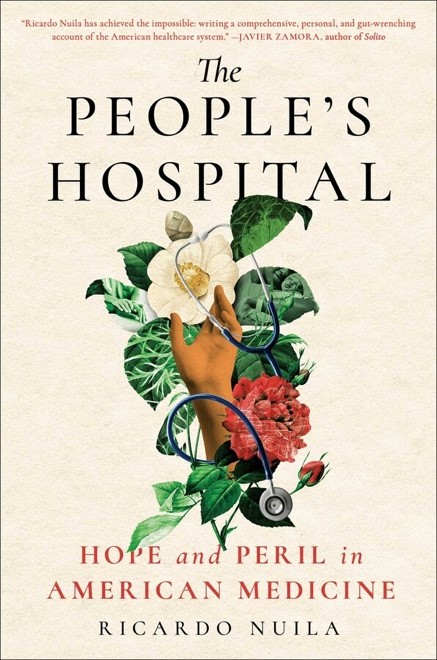
Highlighting the art exhibit Permission to Stare: Living with Neurofibromatosis, currently on display at Mayo Clinic’s campus in Scottsdale, Arizona. Featuring artist Rachel Mindrup and Shelley Noland, Medical Director for the Mayo Clinic Center for Humanities in Medicine and Peripheral Nerve Clinic
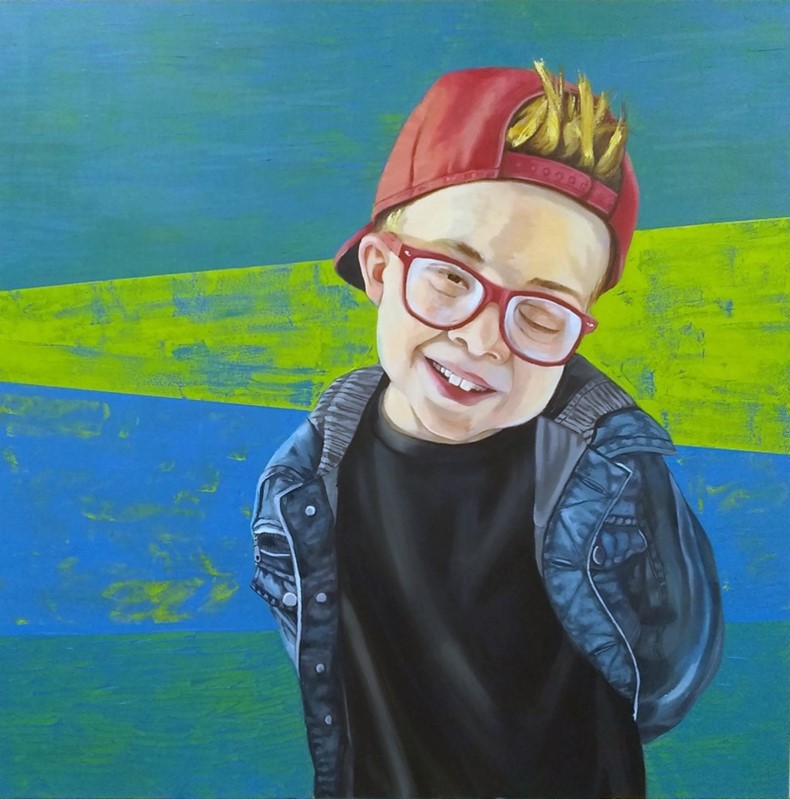
“Thad Before Surgery,” “Thad After Surgery,” by Rachel Mindrup
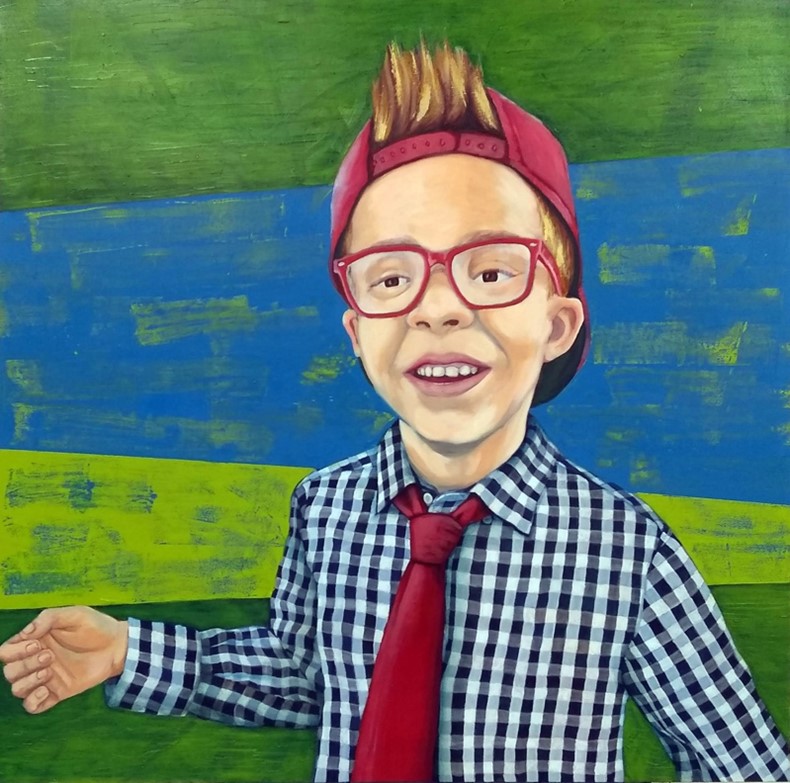
Eric Avery, MD–Emeritus Associate Professor of Medical Humanities, Institute for Bioethics and Health Humanities, The University of Texas Medical Branch at Galveston
Blood Test, Woodcut, Eric Avery (1986)
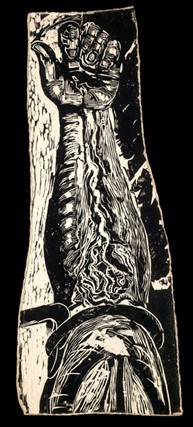
“Emerging Infectious Diseases,” lithograph and linocut, Eric Avery (2000)
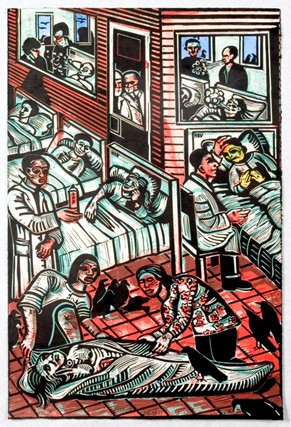
“Stash House,” Linoleum print on handmade paper, Eric Avery (2020)
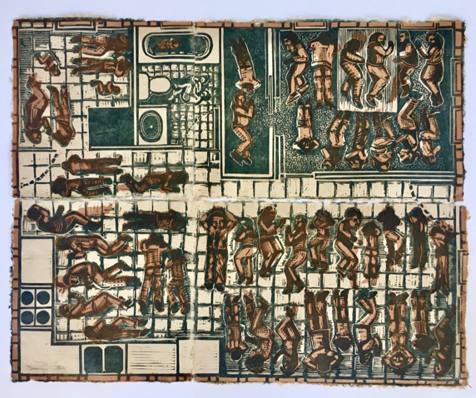
1.Students and early career professionals
2.Phoenix area attendees
3.Health Humanities Consortium committees
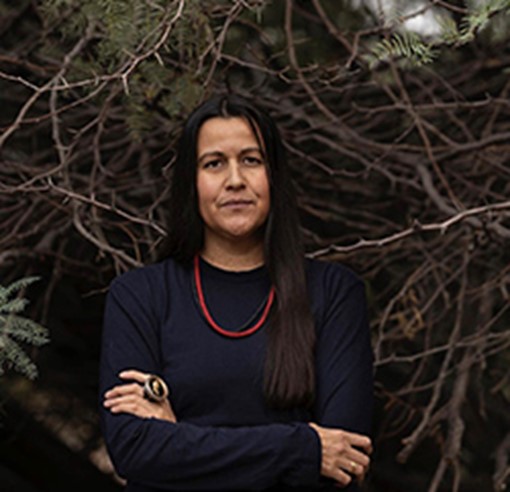
Conference sessions will be held at Creighton University Health Sciences Campus (3100 N. Central Ave, Phoenix, AZ) and the adjacent Park Central business park.
The campus is in the Phoenix Medical Quarter, so called because of the concentration of healthcare, bioscience, and health education entities in the area. Dignity Health, St. Joseph’s Hospital and Medical Center, Valleywise Health, District Medical Group, Phoenix Bioscience Core, and Mayo Clinic are some of the major health organizations in the Phoenix metro.
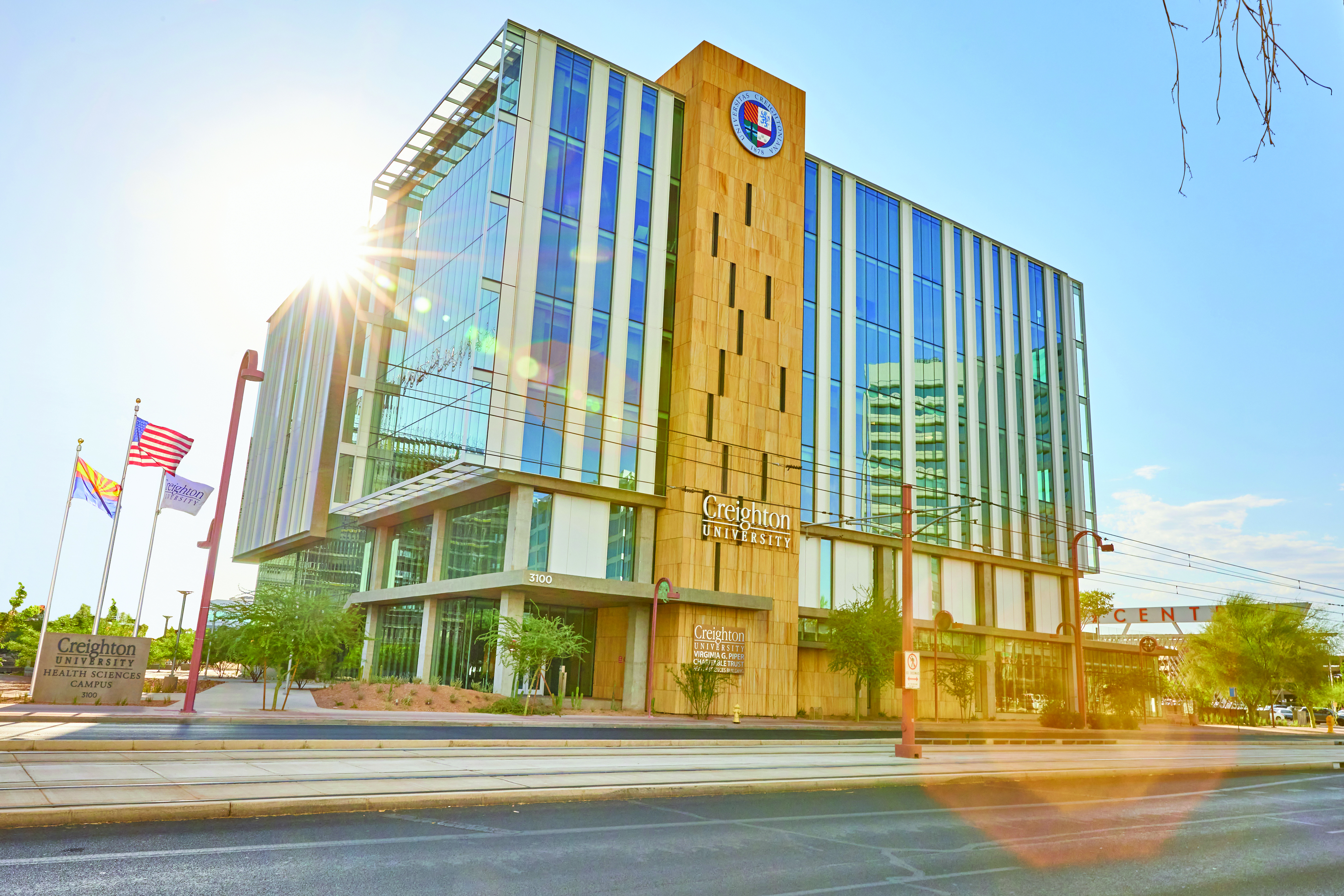

A special rate of $219 is available for a limited block of rooms (suites with one king bed) at Embassy Suites Phoenix North Downtown (10 East Thomas Road, Phoenix, AZ 85012-3114), adjacent to Creighton University Phoenix Health Sciences Campus.
Hotel Booking Link
Check in time: 3 p.m.
Check out time: noon
There is no early arrival fee if you arrive between noon and 3 p.m. There is a $25 fee if you arrive between 9 a.m. and noon. After noon, Embassy Suites will do their best to get you into your room early.
If your room is not ready when you arrive, you may check luggage with the front desk for storage until your room is available.
Nearest Airport: Phoenix Sky Harbor
Public transportation: Valley Metro
|
In-person HHC Member |
In-person Non-member |
||||
|
Individual |
Student/trainee |
Contingent Faculty/ Independent Scholar |
Individual |
Student/trainee |
Contingent Faculty/ Independent Scholar |
|
$275 |
$75 |
$150 |
$325 |
$125 |
$200 |
|
Virtual HHC Member |
Virtual Non-member |
||||
|
Individual |
Student/trainee |
Contingent Faculty/ Independent Scholar/ Low-Mid-Income Country Resident |
Individual |
Student/trainee |
Contingent/Independent/Low-Mid-Income Country Resident |
|
$125 |
$50 |
$50 |
$175 |
$100 |
$75 |